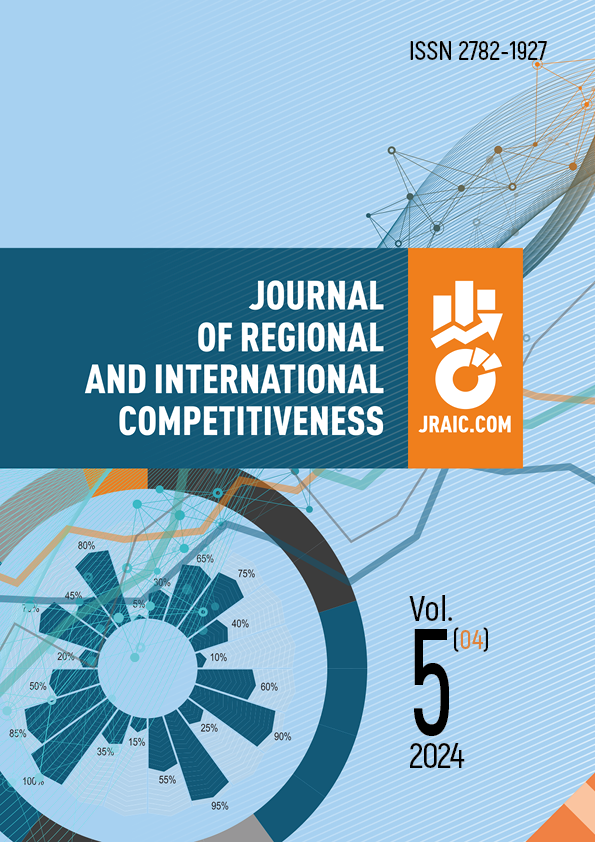Москва, Россия
Калуга, Калужская область, Россия
Статья посвящена правовым и экономическим аспектам государственного управления с применением государственно-частного партнерства для развития на территории России коливинга. Рынок коливинга в последние годы активно развивается в условиях роста урбанизации и изменений в социально-экономической среде, так как этот механизм, ориентированный в первую очередь на обучающихся, предлагает не только жилье, но ряд других социальных и культурных услуг, что делает его привлекательным для разнообразных групп населения: студентов, аспирантов, молодых специалистов, а также экономически интересным для инвесторов. Авторы проводят анализ предпосылок к необходимости применения коливинга на территории РФ, так как дефицит доступного жилья в крупных городах усиливает спрос на новые модели проживания, такие как коливинг, который становится альтернативой традиционным общежитиям и арендному жилью. Целью данной работы является оценка возможностей использования коливинга на территории России в рамках моделей государственно-частного партнерства, с акцентом на экономические и правовые аспекты, влияющие на привлекательность таких проектов для частных инвесторов и государственную инфраструктуру. Результаты исследования показывают, что успешная реализация коливинга требует адаптивных подходов к проектированию и финансированию, учитывающих региональные особенности и уровень урбанизации. Это делает проект устойчивым в экономическом отношении и привлекательным как для частного капитала, так и для государственного сектора, а также может быть полезен для органов управления и инвесторов при реализации проектов доступного жилья для студентов и молодых специалистов.
государственно-частное партнерство, концессии, коливинг, общежития, обучающийся, инвестирование.
1. Ahmadi, Z., Berggren, B., Ismail, M., & Silver, L. (2024). Profitability in public housing companies: A longitudinal and regional analysis using Swedish panel data. Real Estate, 1(1), 158-173. Retrieved from https://doi.org/10.3390/realestate1020008
2. Alshubiri, F., & Al Ani, M. K. (2024). Housing affordability indicators and the sustainability paradigm in OECD countries. Cities, 148, 104904. Retrieved from https://doi.org/10.1016/j.cities.2024.104904
3. Bakhaty, Y., Udeaja, C., & Levatti, H. U. (2024). A framework to adopt modern methods of construction in social housing projects in Egypt. Sustainability, 16(17), 7773. Retrieved from https://doi.org/10.3390/su16177773
4. Bustamante-Mora, A., Diéguez-Rebolledo, M., Hormazábal, Y., Valdés, Y., & Vidal, E. (2024). Policies, projects, and initiatives for sustainable higher education with gender equity: Literature review and case study –Universidad de La Frontera. Sustainability, 16(12), 5038. Retrieved from https://doi.org/10.3390/su16125038
5. Fell, T., & Mattsson, J. (2021). The role of public-private partnerships in housing as a potential contributor to sustainable cities and communities: A systematic review. Sustainability, 13(7783), 7783. Retrieved from https://doi.org/10.3390/su13147783
6. Feng, J., Wang, N., & Sun, G. (2022). Measurement of innovation-driven development performance of large-scale environmental protection enterprises investing in public–private partnership projects based on the hybrid method. Sustainability, 14(5096), 5096. Retrieved from https://doi.org/10.3390/su14095096
7. Levitt, R. E., Scott, W. R., & Garvin, M. J. (Eds.). (2019). Public–Private Partnerships for Infrastructure Development. Cheltenham, UK: Edward Elgar Publishing. Retrieved from https://doi.org/10.4337/9781788973182
8. McKee, K., Soaita, A. M., & Hoolachan, J. (2019). ‘Generation rent’ and the emotions of private renting: Self-worth, status and insecurity amongst low-income renters. Housing Studies, 35(8), 1468–1487. Retrieved from https://doi.org/10.1080/02673037.2019.1676400
9. Pepper, S. H., & Manji, A. (2019). Co-living as an emerging market: An assessment of co-living’s long-term resiliency. Massachusetts: Massachusetts Institute of Technology.
10. Regodon, A., Armand, M., Lastres, C., De Pedro, J., & García-Santos, A. (2021). Data-driven methodology for coliving spaces and space profiling based on post-occupancy evaluation through digital trail of users. Sustainability, 13(22), 12607. Retrieved from https://doi.org/10.3390/su132212607
11. Shi, J., Duan, K., Wen, S., & Zhang, R. (2019). Investment valuation model of public rental housing PPP project for private sector: A real option perspective. Sustainability, 11(7), 1857. Retrieved from https://doi.org/10.3390/su11071857
12. Starostin, S. A. (2016). Problems of public administration in the creation of public infrastructure. Administrativnoe pravo i process, 7, 31–33 (in Russian).
13. Uyttebrouck, C., & Teller, J. (2023). Shared housing for students and young adults and the urban-regeneration process of second-tier cities. Conference ENHR-2023. Poland: Lodz.
14. Wolniak, R., Gajdzik, B., Grebski, M., Danel, R., & Grebski, W. W. (2024). Business models used in smart cities – Theoretical approach with examples of smart cities. Smart Cities, 7(4), 1626–1669. Retrieved from https://doi.org/10.3390/smartcities7040065




















